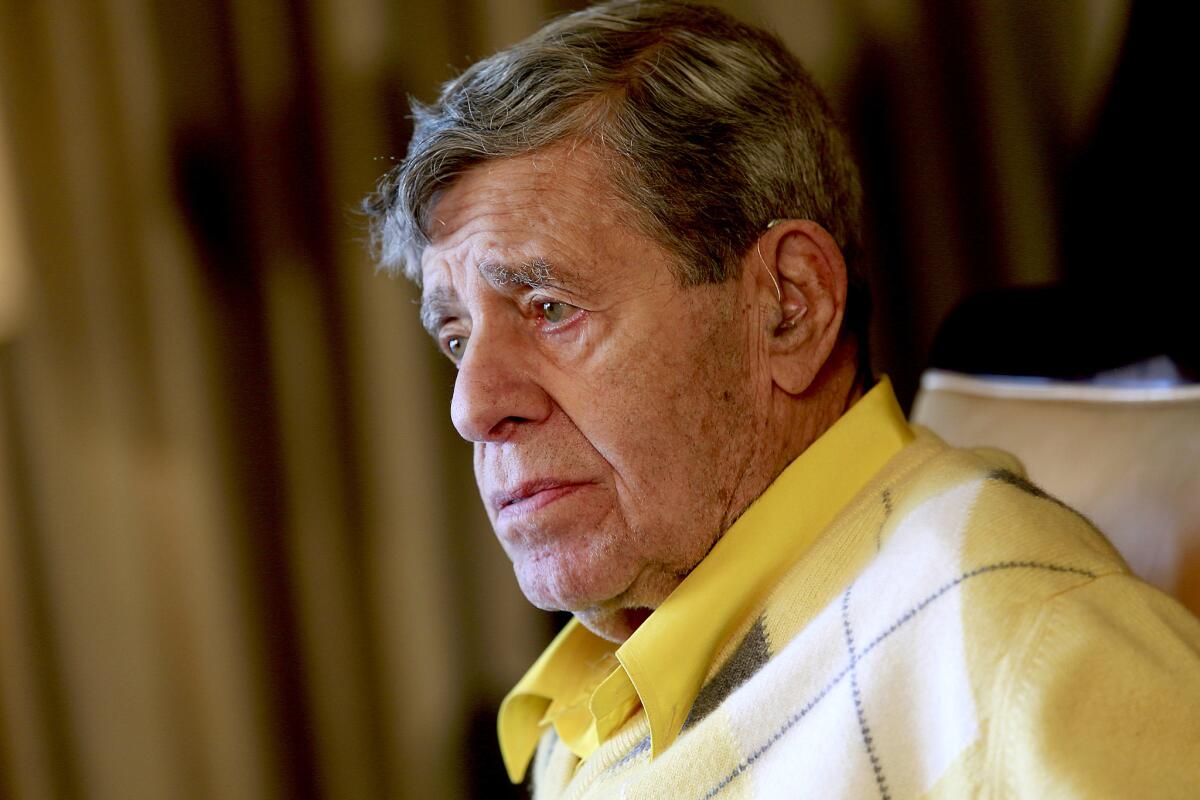Newsletter: Indie Focus: Getting wild with Toronto, Jerry Lewis and ‘White Girl’
Hello! I’m Mark Olsen, and welcome to your weekly field guide to a world of Only Good Movies.
The fall movie season now feels in full swing. I’m writing this week’s newsletter from Toronto, where I’m covering the film festival with the rest of the Los Angeles Times team. To keep up with all our coverage, go to latimes.com/toronto.
We’ve got a few screenings booked for later in September, with Jocelyn Moorhouse’s “The Dressmaker” and the documentary “Amanda Knox.” Check events.latimes.com for more info about upcoming events.
Toronto International Film Festival
The Toronto International Film Festival is one of the biggest events of the movie year, where Oscar hopefuls rub elbows with more commercial titles, independent movies and esoteric international films. The only drawback is that there is simply so much of it, so many films to see and possible interviews to do that you always have the feeling you’re in the wrong place no matter where you are. We’ve got a big team covering the festival this year, so hopefully we (and you) don’t miss a thing.
To get things starts Steve Zeitchik took a look at the influx of race-themed films in this year’s festival, including “Moonlight,” “A United Kingdom,” “The Birth of a Nation,” “Loving” and more, and what that means for the industry and audiences alike.
Justin Chang gave his rundown of the top films to look out for, both at the festival itself and later on in the year. He also attended the world premiere of the festival’s opening-night film, “The Magnificent Seven.”
And I attended the Toronto premieres of both Ben Wheatley’s “Free Fire” and Bertrand Bonello’s “Nocturama.”
I also spoke to Christopher Guest about his new comedy “Mascots,” which is premiering as part of the festival.

‘Max Rose’
Written and directed by Daniel Noah, “Max Rose” features Jerry Lewis in his first leading role in more than 20 years. In the film he plays a retired jazz musician grieving over the death of his wife.
I had the distinct pleasure of sitting down with Lewis for a revealing interview. His performance in “Max Rose” is an elegant grace note to the end of Lewis’ career. Just don’t tell him that.
“I don’t know that that’s the case,” Lewis said of how he would feel if “Max Rose” were his last leading role onscreen. “I could start one tomorrow. And I’ve got two in my typewriter now. I’ve been writing for probably a year and a half on a screenplay that I love and that I will do.
“I’m only 90, for Christ’s sake. What do you want?”
In his review for the L.A. Times, Gary Goldstein didn’t quite see things the same way, finding the film to be “such a maudlin, ham-fisted dud, it deserves little more than footnote status.”
In her review for the New York Times, Jeanette Catsoulis called the film “a soggy, fragile feature about love, death, marriage and memories,” while adding, “moviegoers of a certain age will be unable to resist this unexpected glimpse of a true-blue legend.”
‘White Girl’
The feature debut for writer-director Elizabeth Wood, “White Girl” was one of the most talked-about and divisive titles at this year’s Sundance Film Festival. In the film Morgan Saylor plays a college student in New York City who gets in way over her head in the drug scene. Time and again her looks, naiveté and simply being a young blond white woman alter the outcome of situations without her even realizing it, and the film becomes a startling look at race and class privilege.
In his review for The Times, Justin Chang said “’White Girl’ isn’t one of those upbeat ghetto fables where cleverness and ingenuity win the day and the plucky underdog beats the system at its own game ,,,, By the time the sensory rush dissipates and the hangover sets in, only Wood’s sharply observant social critique remains.”
For the Tribune News Service, Katie Walsh said, “’White Girl’ is specifically about race, and the way that it affects how these characters experience the world, their mobility on the street and in life. Bodies of color are judged, contained and restrained, while Leah enjoys the affordances granted her simply by the way that she looks, the way that people read her socially, her blond hair, nubile body and innocent, freckled visage.”
In the New York Times, Stephen Holden said, “We’re all familiar with the term contact high, but not with its antithesis. Because it is so believable, ‘White Girl’ is a contact bummer that’s hard to shake.”
I interviewed Wood recently when she was in Los Angeles for a screening of the film as part of Sundance Next Fest and will be publishing that soon.
Email me if you have questions, comments or suggestions, and follow me on Twitter @IndieFocus.
More to Read
Only good movies
Get the Indie Focus newsletter, Mark Olsen's weekly guide to the world of cinema.
You may occasionally receive promotional content from the Los Angeles Times.











